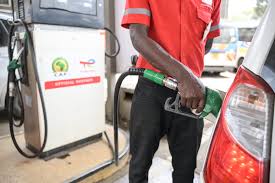The Auditor General of Kenya has raised serious concerns over the fuel price stabilization program and the Government-to-Government (G-to-G) petroleum importation scheme carried out during the 2023/2024 financial year.
In a new report, the Auditor General disclosed that the State Department for Petroleum made payments worth KSh 47.26 billion to Oil Marketing Companies (OMCs) as compensation for keeping fuel pump prices low under the stabilization plan. However, these payments were marked as “unsupported” due to a lack of transparency, proper documentation, and absence of governance structures.
The report said the department ignored advice from the National Treasury, which had recommended forming a Multi-Agency Team to review the financial implications and sustainability of the fuel stabilization initiative. The team was also expected to develop a framework for managing the program and handling compensation, but this was never done.
In March 2023, the Kenyan government started a G-to-G petroleum importation deal, aimed at reducing the pressure on the country’s foreign exchange reserves and protecting the Kenyan shilling from further depreciation. The system was based on signed Memoranda of Understanding (MoUs) and Master Framework Agreements (MFAs) between Kenya and global oil suppliers.
However, the Auditor General’s investigation into the program has now exposed several governance failures. Importers were selected in ways that violated the MoUs. The report also found that one previously chosen importer was removed without explanation, and two new importers were brought in without any supporting documents.
Furthermore, five commercial banks involved in key financial agreements under the scheme were found not to have signed any legally binding Deeds of Adherence. This raised questions about the legality of their roles in the project.
The report also flagged irregular financial practices. For example, KSh 2.54 billion (equivalent to USD 19.85 million) was recovered from consumers through fuel pump prices to cover shortfall financing. But this was done without the approval of the Energy and Petroleum Regulatory Authority (EPRA) board, which is legally required to give the green light for such financial decisions.
In addition, the report showed that KSh 954.65 million in legal fees was passed on to consumers between July and September 2023 as part of the fuel pricing formula. However, there was no information about who received the money, what it was used for, or who approved the payments.
Another KSh 3.98 billion was charged to consumers as demurrage fees — costs incurred when fuel vessels are delayed at ports. But these charges were not backed by documentation such as supplier claims or approval records from the government’s internal committees.
These revelations come at a time when Kenyan consumers are already struggling with rising fuel prices. EPRA recently announced fresh increases in fuel prices, which took effect from July 15 and will remain in place until August 14, 2025.
Under the new pricing, Super Petrol rose by KSh 8.99 per litre, Diesel by KSh 8.67, and Kerosene by KSh 9.65. In Nairobi, the revised prices mean Super Petrol now sells at KSh 186.31 per litre, Diesel at KSh 171.58, and Kerosene at KSh 156.58.
In Mombasa, Super Petrol is now KSh 183.02, Diesel at KSh 168.30, and Kerosene at KSh 153.29. Other towns are also seeing similar increases.
The main reason for the latest price hike is a significant rise in the average landed cost of imported petroleum products between May and June 2025. This development is expected to further increase inflation, with ripple effects on transport fares, production costs, and general cost of living for most Kenyan households and businesses.
Experts say the issues highlighted in the Auditor General’s report could damage public trust and lead to calls for stricter controls in the energy sector. Analysts warn that if not addressed, these governance lapses could undermine the very policies meant to protect consumers from high fuel prices.
